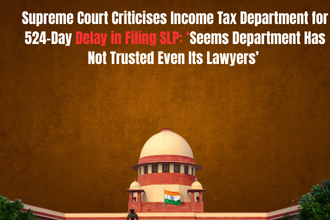In a landmark judgment that underscores India’s linguistic pluralism and secular ethos, the Supreme Court on April 15, 2025, upheld the inclusion of Urdu alongside Marathi on a municipal signboard in Patur, Maharashtra. The Court emphasized that language should be a medium of unity and communication—not a source of division. The bench, comprising Justices Sudhanshu Dhulia and K. Vinod Chandran, dismissed the challenge to the Bombay High Court ruling that allowed Urdu to be displayed on the signboard of the Municipal Council building.
Key Observations from the Supreme Court
Justice Dhulia, authoring the judgment, firmly stated:
“Let our concepts be clear. Language is not religion. Language does not even represent religion. Language belongs to a community, to a region, to people; and not to a religion.”
The Court stressed that the use of Urdu, a language spoken by many in the region, does not violate the Maharashtra Local Authorities (Official Languages) Act, 2022, especially since Urdu is a Scheduled Language under the Eighth Schedule of the Constitution, similar to Marathi.
Background of the Case
Case Title: Mrs. Varshatai W/o. Sanjay Bagade v. State of Maharashtra & Ors.
Citation: 2025 LiveLaw (SC) 427
Issue: Whether the usage of Urdu on a signboard of a Municipal Council building violated state language laws and promoted religious identity.
The petitioner had challenged the inclusion of Urdu on a municipal signboard, arguing it was not the official language of the State and suggested a religious preference. The Bombay High Court rejected the plea, leading to the appeal in the Supreme Court.
Court’s Stand on Language and Religion
The Supreme Court made a clear demarcation between language and religion, stating that associating a language with a specific religion is historically and constitutionally flawed.
Urdu, the Court noted, is deeply rooted in Indian soil and is an integral part of India’s composite cultural heritage, often referred to as Hindustani tahzeeb or Ganga-Jamuni culture. Justice Dhulia described Urdu as:
“The finest specimen of Hindustani tahzeeb… the yardstick to measure the civilizational march of a community.”
Hindi and Urdu: Not Two, But One Language
Citing prominent linguists and scholars like Gyan Chand Jain, Ram Vilas Sharma, Amrit Rai, and Abdul Haq, the judgment asserted that Hindi and Urdu are essentially the same language, differentiated only by script and vocabulary.
While Hindi uses Devanagari and Urdu uses Nastaliq, both languages share common phonology, grammar, and syntax. Therefore, according to scholars and the Court, treating them as distinct languages for political or religious reasons is a “linguistic fallacy.”
Historical Context from the Constituent Assembly Debates
The judgment also revisits the Constituent Assembly Debates, where intense discussions surrounded the issue of a national language. Initially, Hindustani, a blend of Hindi and Urdu, was seen as the ideal national language. However, post-Partition, political polarization led to Hindi being declared the “Rajbhasha” (official language) under Article 343, while English was to be used for a limited time.
The Court recalled Jawaharlal Nehru’s speech, emphasizing that Hindi should be enriched by Urdu, reinforcing the idea that Urdu was never meant to be marginalized.
Legal and Constitutional Framework
- Article 343: Hindi is the official language of the Union.
- Article 345: Allows States to adopt any language in the Eighth Schedule as their official language.
- Maharashtra Local Authorities (Official Languages) Act, 2022: Recognizes Marathi as the official language, but does not prohibit the use of additional languages.
The Court reiterated that there’s no legal bar on using an additional language like Urdu on a public signboard, especially when that language is spoken by a significant section of the local population.
Recognition of Urdu in Other Indian States
The Court took judicial notice that several Indian States and Union Territories have adopted Urdu as their second official language, including:
- Andhra Pradesh
- Bihar
- Jharkhand
- Telangana
- Uttar Pradesh
- West Bengal
- Delhi
- Jammu & Kashmir
This widespread adoption of Urdu reflects its integral role in India’s linguistic and cultural framework.
Conclusion: Language Should Unite, Not Divide
This judgment is a progressive step toward preserving India’s linguistic diversity and ensuring that languages are not weaponized for political or communal agendas. The Supreme Court has once again affirmed the secular vision of the Constitution and emphasized that linguistic rights are cultural rights that must be protected in a democratic society.
As Justice Dhulia eloquently noted:
“Language is culture. Language is the yardstick to measure the civilizational march of a community and its people… Let us make friends with Urdu and every language.”


